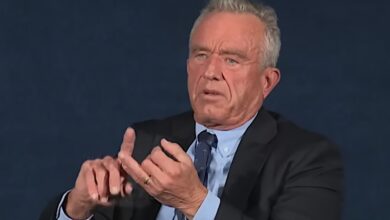College student finds there is no mercy in today’s cancel culture

It is one thing when, as an adult, you are held accountable for the choices you make, especially if you are unrepentant. It is another thing when, as a new college student, you are severely penalized for a three–second video posted on social media when you were just 15.
But that is exactly what happened to Mimi Groves.
She was a championship-winning cheerleader in high school and was accepted by the University of Tennessee, her dream school. She was also accepted by their cheerleading squad, which was one of the top squads in the nation.

Now 18 years old, she was excited to start living out her college dream. And that’s when the cancel culture struck.
When Mimi was 15, she posted a three-second video on Snapchat while she sat in her car in traffic, saying, “I can drive, n*****s.” That was it.
Three years later, in the aftermath of the death of George Floyd in June of this year, and while a senior in high school, she posted something very different.
Using her Instagram account, she encouraged people to “protest, donate, sign a petition, rally, and do something” to help support the Black Lives Matter movement.
READ: National Public Radio journalist charged in firebombing of police
So, whatever her intent was when she was 15, her intent now was clear. She was saying that racial justice was important and that she sided with the American Black community.
But that is not how the cancel culture saw it. It does not understand the concepts of mercy and redemption. Instead, it is ruthless and unforgiving.
High school classmate Jimmy Galligan decided to make an example of her after a friend sent him a text message with her three-second video. He sent it to the school faculty and administrators, but they did nothing about it, leaving him frustrated and angry.
So, he waited for an opportune moment. The moment she was accepted to the college of her dreams.
When he saw Mimi’s post in support of Black Lives Matter, which he should have cheered on, he struck, posting her video on Instagram. From there, the video spread to other social media platforms. The University of Tennessee received a flood of emails social media posts protesting Mimi’s presence on the campus.
Within two days, “she was kicked off the university’s cheer team and forced to withdraw from UT under pressure from admission officials, citing hundreds of emails and phone calls from outraged former and current students.
“‘They’re angry, and they want to see some action,’ an administration official told Groves and her family, as reported by the New York Times.”
As for Jimmy Galligan, he says he has no regrets about what he did, feeling that he taught Mimi a lesson.
And that is where things stand today, which is absolutely sick.
How many of us did not say or do something stupid and insensitive at the age of 15? What if those of us who are older today had social media when we were teens? How many of our idiotic moments would come back years later to haunt us?
Can anyone survive under such a glaring light?
I don’t know about you, but I was a first-class jerk at the age of 15.
But three years later, at the age of 18, after experiencing a radical conversion, I was a brand new man.
I had read the Bible cover to cover 5 times and memorized more than 4,000 verses. I had preached my first sermon. I was on my way to college, not because I wanted to but because it was my parents’ desire, and I wanted to honor them.
Profanity was gone from my vocabulary and cruelty from my heart.
Yet in today’s cancel culture, the earlier sins of my youth could have been held against me for life instead of simply being part of my personal testimony.
I hope and pray that in the days ahead, Mimi’s fortunes will take a dramatic turn and her best and most wholesome dreams will be fulfilled. I also hope and pray that Jimmy will learn that vindictiveness destroys and that forgiveness liberates.
As for the cancel culture as a whole, I hope and pray that it will learn the power of forgiveness.
As expressed by Dr. Martin Luther King, “We must develop and maintain the capacity to forgive. He who is devoid of the power to forgive is devoid of the power to love. There is some good in the worst of us and some evil in the best of us. When we discover this, we are less prone to hate our enemies.”
The sooner we learn this, the better. The body count is growing by the day.
–Dr. Michael Brown is a Metro Voice columnist








